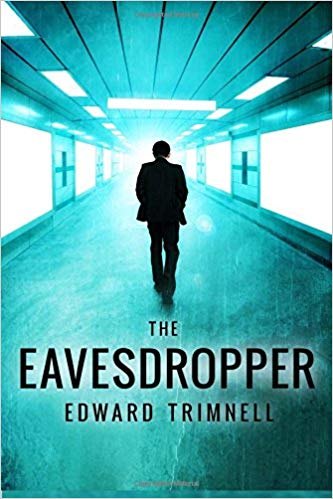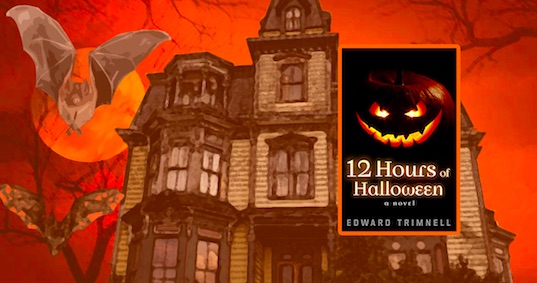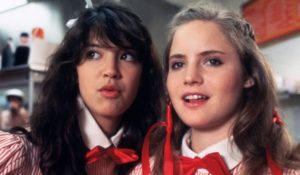We finished breakfast without further outbursts. My mother’s pancakes were delicious, as always.
As we were all clearing off the table, my father’s mood visibly brightened.
“How are things going with the Bonneville, Steve?” he ventured.
I decided that the time had come to eat crow, to come clean.
“Not so well. To tell you the truth, Dad, the car leaks oil, just like you said.”
“I have noticed the puddle on the concrete, over where you park,” he said. “Tell you what. What say you let me take a look at the situation, then the two of us can head over to Bauer’s Auto Parts?”
I felt my own spirits lift along with my father’s. I had been at a loss in regard to the Bonneville. And now it seemed that my father was going to bail me out.
“Yes, Dad,” I said. “That sounds like a good idea. Please.”
We opened the garage door, and Dad and I put the Bonneville up on jacks inside the garage. My dad slid underneath the car on his rolling creeper. He needed only a few minutes underneath the car to diagnose the situation.
“Well, son,” he said, as he stood up from the creeper. “You’re in luck. The oil pan isn’t cracked. That would have been a fairly major repair. What you’ve got is a leaky gasket. We should be able to get a new gasket at Bauer’s Auto Parts.”
Once again, I felt the clouds lifting.
They would not remain lifted for long.
We drove over to Bauer’s Auto Parts. Much like the Pantry Shelf, Bauer’s Otto Parts was an independent store, not affiliated with any national chain. The auto parts store was located inside a long, grey building constructed around the turn of the twentieth century. The building had originally been a small factory or a warehouse.
Otto Bauer was around my father’s age. A second-generation American, he was the son of German immigrants. Otto had also served in the Second World War—on our side, of course—as a battlefield interpreter.
Otto was standing behind the counter when we walked in. He hailed my father and me, but he seemed distracted, maybe a little glum.
“Where do you keep the oil pan gaskets?” my dad asked.
Unlike the surly clerk at the Sunoco station, Otto was immediately helpful. He walked us back to the location in the dusty store where the oil pan gaskets were kept.
“You should find what you need here,” Otto said. “I’ll be waiting for you at the counter. Let me know if you need any further assistance.”
As Otto walked back to the front of the store, I turned to my father.
“Something wrong with Otto?” I said in a low voice.
My dad shrugged. “Can’t say. Maybe.”
Otto also had a ne’er-do-well son, who was a former classmate of my brother. Jack and Dan Bauer had even run around together from time-to-time. Unlike Jack, Dan had managed to avoid military service completely during the Vietnam conflict, by staying enrolled in classes at UC, and keeping his grades barely above the passing level.
Maybe Otto was having similar problems with Dan, I figured.
We—or rather, my dad—selected the particular gasket from the ones hanging from pegs. An oil pan gasket, in case you don’t know, is a long, oddly shaped piece of rubber that seals the oil pan to the engine block. On the way over to the auto parts store, my father had explained to me that the gasket currently on the Bonneville was warped and cracked, hence the slow, constant leak.
As we headed toward the counter, I started to remove my wallet from my right rear jeans pocket. My dad put a hand on my arm.
“No, son. This will be my treat.”
“Really? Dad, you don’t have to—”
“I know I don’t have to. But I want to. Next time, though, please take my advice on automotive matters.”
“Sure thing, Dad. Thanks.”
Otto was waiting for us at the counter, looking sour-faced and distracted as ever.
“Find the one you needed?” he asked.
We both told him that yes, we had, and Otto rang up the purchase on his mechanical cash register.
Now my father had taken notice of his mood, too.
“Anything wrong, Otto?” Dad asked. “You don’t seem quite yourself today.”
“Yes, now that you mention it,” Otto said. “Dan.”
I figured that Dan was involved in some kind of predictable trouble. He had been arrested for drunk driving or drug possession, maybe. But that wasn’t it.
“Dan’s gone missing,” Otto said.
“Missing?” I said.
“Ja,” Otto said. Though Otto spoke perfect English, he had grown up speaking German at home. “Dan took off on his motorcycle three days ago,” Otto went on, “leaving his girlfriend’s house. And he hasn’t been seen since.”
“You’ve reported him missing, of course,” my father said, more a question than a statement.
“Yes.” Otto nodded. “They already have their hands full with another missing persons case. Those two other young people.”
“What other young people?” my dad asked. “Someone else is missing?”
“Yes,” I inserted. “Two twenty year-olds. Robert McMoore and Donna Seitz.” Dad looked at me as if to ask: How do you know? “I saw a missing persons flyer,” I added.
“Oh,” my father said. “So we now have three missing young adults in the area.”
Otto paused to think. “I wonder if they’re connected. I hope they’re not connected. I hope that my Dan has simply gone off on a binge somewhere, and that this McMoore fellow and his girlfriend have eloped. Not an outcome that their parents would like, perhaps, but much better than some of the alternatives.”
“I hope so, too,” Dad said. “Good luck finding Dan, Otto. We’ll keep your family in our thoughts and prayers.”
We were driving home in Dad’s pickup truck. Otto’s bad news had put a damper on my relief at discovering a simple solution to the problem with the Bonneville.
“Now you see, son,” Dad said, “you see how much is going wrong with our country. When I was in my early twenties, we had the war, of course; but we didn’t have serial killers. Young men weren’t found in the woods with their heads cut off; and if young people did go missing, it was almost always temporary, and it was almost always because they’d eloped or just run off. Do you know when those other two were last seen?”
“More than two weeks ago,” I said.
“That means they probably didn’t elope, then. It also means that there probably isn’t going to be a happy ending for them and their families.”
Chapter 39
Table of contents






